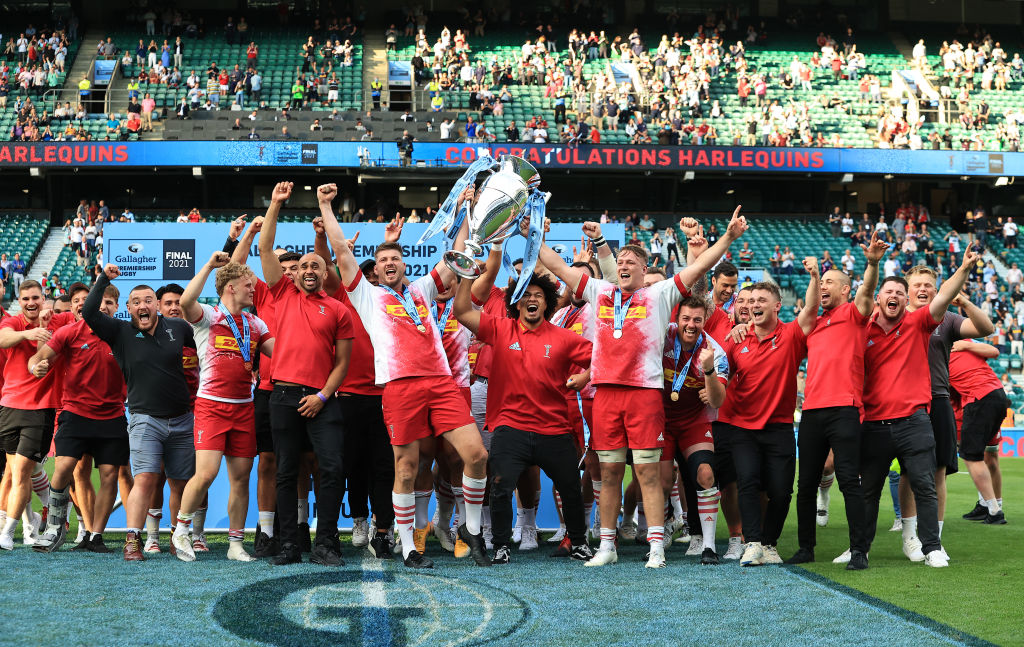Premiership Champions set for ‘forensic assessment’ into finances

LONDON, ENGLAND - JUNE 26: The Harlequins players celebrate with the trophy following victory during the Gallagher Premiership Rugby Final between Exeter Chiefs and Harlequins at Twickenham Stadium on June 26, 2021 in London, England. (Photo by David Rogers/Getty Images)
Premiership Rugby has said the winner of Saturday’s final will be subject to a forensic investigation of their books, as they released a report into players’ salaries.
The report, based on the 2020-21 season, was released in response to Saracens‘ deliberate breaches of the salary cap in an effort by Premiership Chiefs to improve transparency.
It comes after a comprehensive review completed by former financial services secretary to the Treasury Lord Myners.
Salary cap director Andrew Rogers was given greater autonomy, possible punishments were made more severe – with clubs now being able to be stripped of silverware for breaches – and all clubs were subjected to annual audits, with extended audits for the Premiership Champions.
Last year’s winners Harlequins were subject to a stringent investigation last year, and the winner of this Saturday’s Premiership final involving Saracens and Leicester – the latter of whom have had a salary cap controversy of their own to contend with this season – will receive similar treatment according to Rogers.
He said: “The aim is to give everyone greater confidence in the system, particularly with this new extended audit, which we have done for the first time with Harlequins.
“The winner this year will undergo an extensive audit when we do a forensic assessment of the club through emails, telephone records, bank statements and tax returns.”
Rogers, appointed in November 2020, is hopeful that this system will prevent a repeat of the situation leading up to Saracens’ exposure, where for nearly a decade suspicions existed, but were difficult corroborate.
“There was a frustration that we knew what was going on but couldn’t always prove it,” added Rogers.
“We are now able to do a far more extensive process, which is very positive.”
For individual players salaries, it was not a surprise to see that fly-halves were paid the most in the league at an average of £175,000, but perhaps more so that second rows were the highest paid forwards, earning £158,600.
Hookers were at the lowest end of the pay scale, earning an average of £113,000, while scrum-halves were the lowest paid backs, earning £57,000 less than their fellow half-backs at £118,000.
Concluding on the salaries of number nines, Rogers added: “There has been a change in supply and demand particularly around scrum-halves, we have seen over the last five years that has changed quite a lot.”